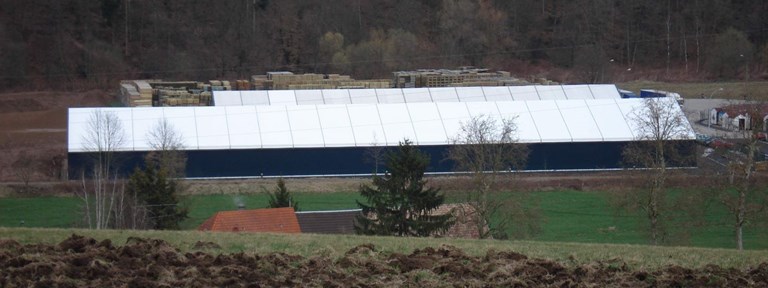Modular construction on the rise
Both the current economic crisis following the Covid-19 outbreak and the uncertainty with regards to the further development of the pandemic have made flexibility more important than ever for many enterprises. An increasing number of companies are reluctant to invest in long-term building projects or to enter into rental or purchase agreements for existing buildings. Partly because of this, modular, semi-permanent construction is on the rise as a fast and flexible alternative to traditional builds - a shift from real estate to rapidly deployable property.
The fact that the world economy is in a state of flux is nothing new. Every crisis and every boom brings opportunities and threats to every company, large or small. Usually, a period of low economic activity is followed by a period of recovery, after which a new boom can arise. However, the current situation is much more unpredictable as a result of the Covid-19 pandemic. Both locally and globally, the current situation remains highly volatile. The area where raw materials come from, your largest target market, that important transit hub, all can be closed off or be inaccessible in a matter of days.
"Being able to respond quickly to current developments is vitally important for both locally and globally active companies”
Increased demand for storage and transshipment space
As a leading global supplier of modular buildings for both temporary and permanent use, Losberger De Boer noticed a sharp increase in the demand for storage space around ports and airports shortly after the start of the corona crisis, as was the case almost immediately after the definitive announcement of the 'Brexit'.
The reasons for this are plentiful (batches remain lying around because the market is not available, goods and raw materials are purchased in larger numbers as a precaution, parts, goods, and stock are moved to areas that are considered 'safer', etcetera), but all have led to a great demand for flexible storage and transshipment space.
Speed and flexibility are key
A month-long search for a new property or new location, followed by a long permit process and ditto construction period is no longer an option for many companies, nor can they afford to commit themselves to long periods of renting property. The ability to respond quickly to economic developments, which are currently happening in more rapid succession than ever before and are oftentimes unpredictable, is of vital importance for both locally and globally active companies.
From temporary to permanent use
Modular construction has been on the rise in non-residential construction for a number of years now. Temporary structures have been developed further in recent decades and are now fully-fledged buildings that can be used for decades (and even permanently). In the Netherlands, temporary space solutions from Losberger De Boer are currently in use as storage locations, logistics hubs, supermarkets, company canteens, and even as an airport terminal at Rotterdam Airport. In all these cases, temporary, modular construction provided a high quality and, above all, a lightning-fast alternative to permanent construction or rental.
Days and weeks instead of months and years
Temporary construction specialists like Losberger De Boer can deliver their structures quickly. "How fast is fast? There are many factors that have an influence on delivery times, certainly because we always deliver custom work, but we are still talking about days and weeks here, instead of months and years", says Marc Westerwaal, Managing Director of Losberger De Boer in The Netherlands. "Based on our experience, expertise, and a large stock of modular construction frames, in combination with the fact that we produce everything ourselves, I can safely say that we can start building shortly after the first contact".
Scalable and relocatable temporary buildings
Building business space can, therefore, be done quickly. But in what other ways does modular construction offer flexibility? First of all, in terms of lifespan. Modular structures can be rented for a short period of time, but can also stand for decades. In this case, temporary becomes more or less permanent. Currently, countless Losberger De Boer buildings around the world are in permanent use as warehouses, terminals, or supermarkets.
Where modular construction further distinguishes itself from regular or permanent construction, is the flexibility in use. Thanks to their modular character, temporary buildings can not only be made exactly to size, but they are also easy to scale up and down. They can therefore grow or shrink along with a company's sometimes rapidly changing space requirements. These structures are also movable and can be adapted to other uses. The combination of customization and flexibility makes these modular buildings very suitable for placement on a company's own premises.
"At a time when flexibility is more important than ever, we can help companies to continuously adapt their business processes to the current situation and optimize them," says Marc Westerwaal. "When space requirements change, our structures can be adapted. Moreover, we also offer flexibility in a financial sense. The investment costs for renting a semi-permanent construction are considerably lower than that of a permanent building. And because we can guarantee that our buildings will always meet a company’s space requirements, the investment is always closely related to the use of the space".
Would you like to know more about Losberger De Boer's fast, flexible space solutions? Click here or contact us.
